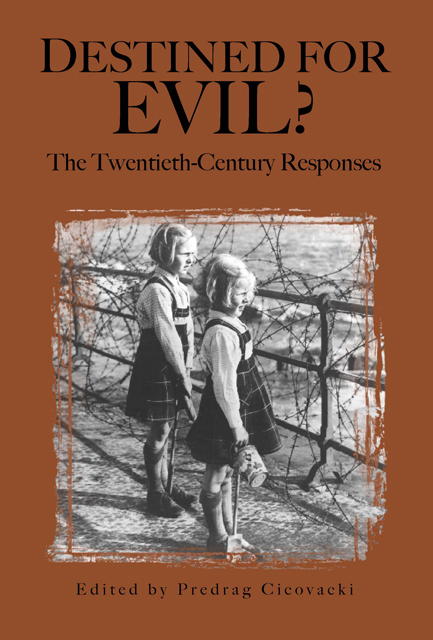Book contents
4 - Uprooting Evil and the Building of Ethical Communities
Published online by Cambridge University Press: 17 March 2023
Summary
Reflecting on the tragedies of our times, our symposium sponsors tell us: “The twentieth century has put a dark shadow of doubt over the residual hope in the moral progress of the human species. The World Wars, the Nazi concentration camps, the Soviet Gulag, the Chinese ‘Great Leap Forward’, and many other less spectacular but no less horrific examples of ideological, ethnic and religious slaughter force us to come to terms with the problem of evil.” Such reflections prompt questions. Where does evil come from? What is the source of the impulses that lead people to commit such deeds? Can we at least place the blame for the more massive crimes of our times on leaders with desires and motives of a different cast than those of the ordinary good citizen? One of the most surprising outcomes of the analyses performed regarding the motivational structure of Nazi war criminals was that these individuals, for the most part, were not psychologically aberrant. Commenting on the particular personality of Adolf Eichmann, Hannah Arendt coined the unforgettable phrase the “banality of evil.” Must we not then assume a capacity for evil within even ordinary people to account for the possibility of these massive crimes? If evil is innate to the species, must we not abandon our hope for moral progress altogether? I will argue that rather than abandon our hope for moral progress because of the seeming “radicality” of evil, we ought to embrace this doctrine first enunciated by Immanuel Kant in his Religion within the Limits of Reason Alone as the very source of a solution.
Perhaps no doctrine on the sources and nature of evil has proved more perplexing than Kant's notion that man has an innate propensity to evil and that, therefore, the character of the species is evil. However, as pessimistic as this may sound regarding the nature and destiny of humanity, this perspective on evil offers us a way to envision an “uprooting” of evil through the development of ethical forms of community. To see this I will have to unpack the connection in Kant's theory between evil and human predispositions.
- Type
- Chapter
- Information
- Destined for Evil?The Twentieth-Century Responses, pp. 75 - 80Publisher: Boydell & BrewerPrint publication year: 2005

